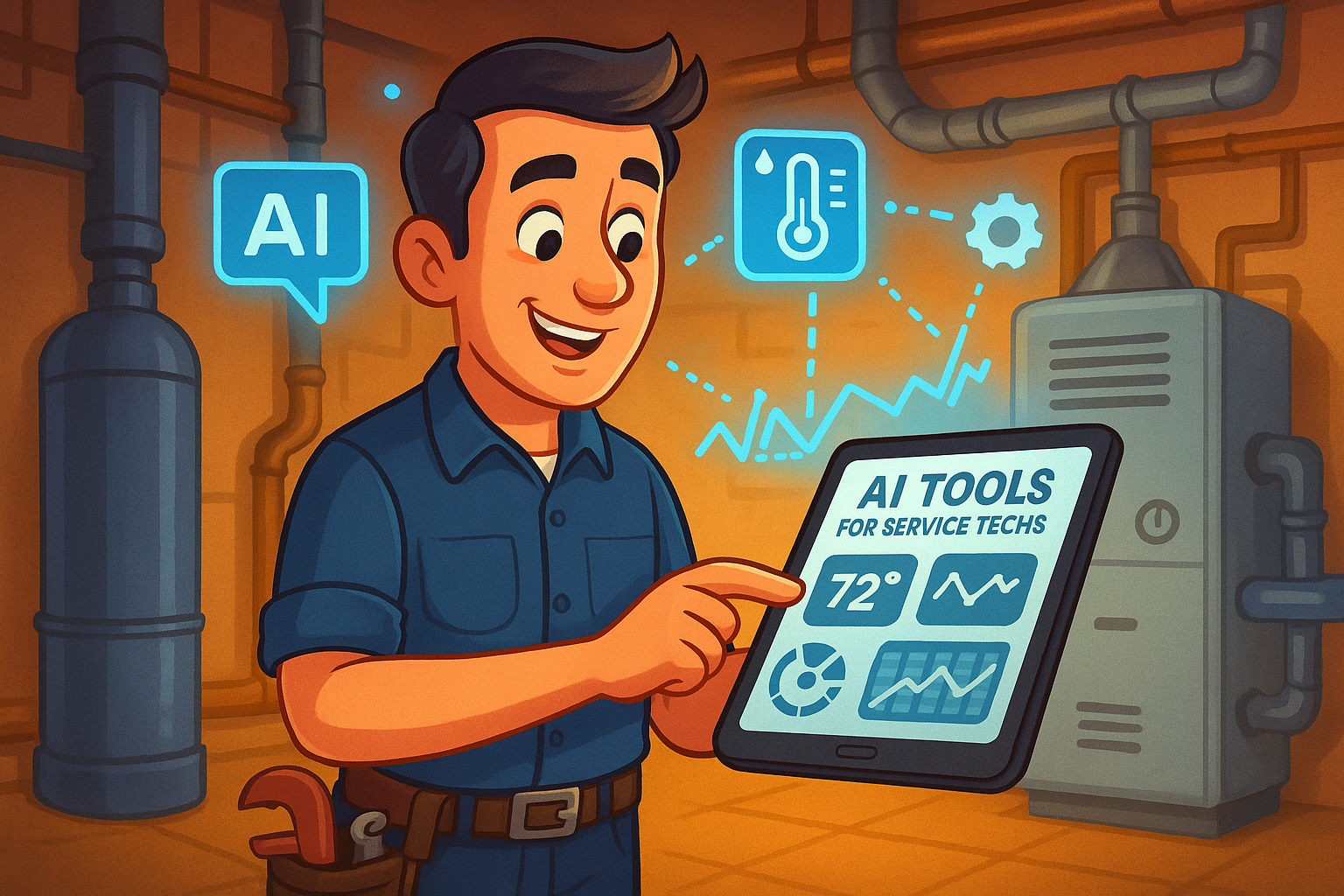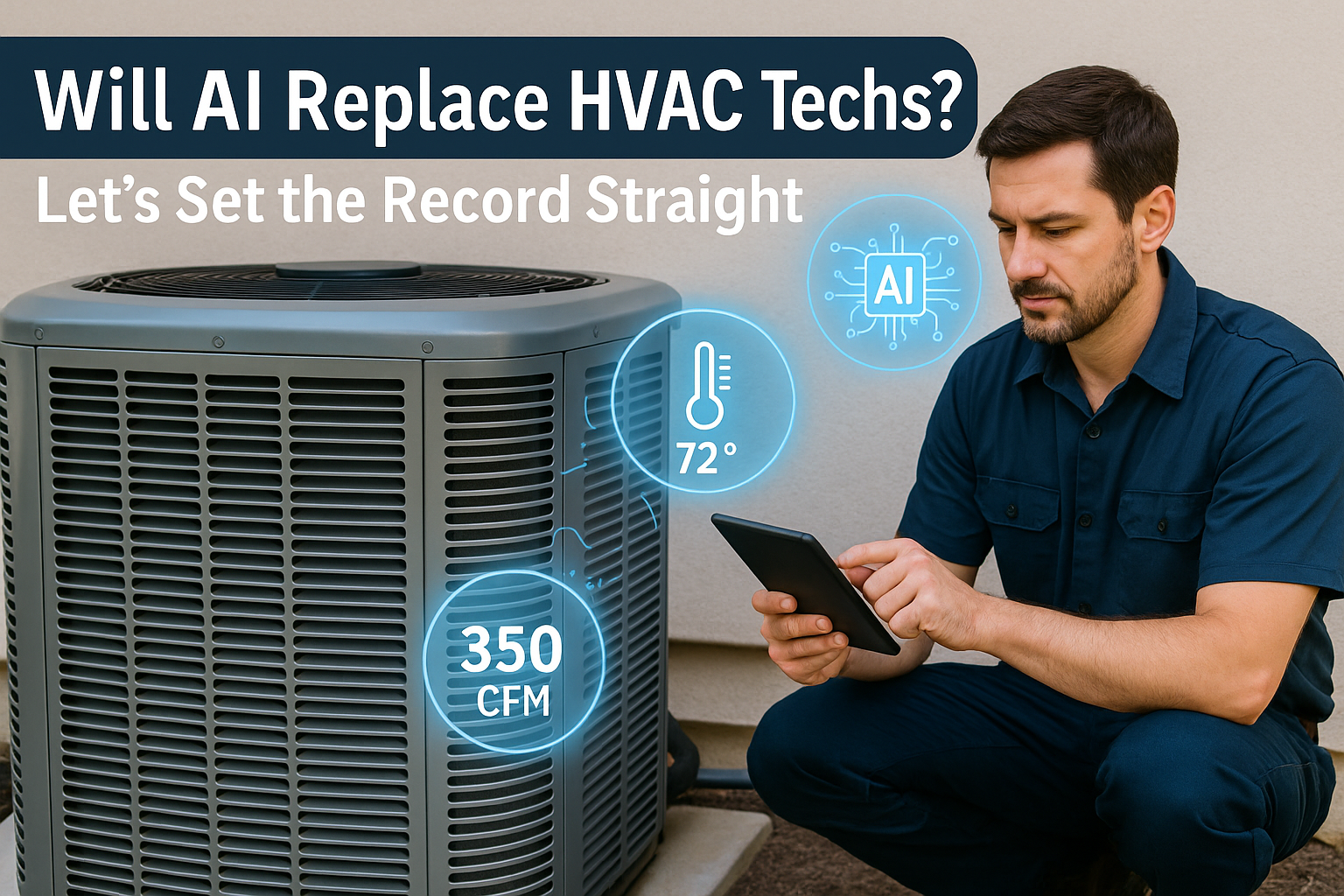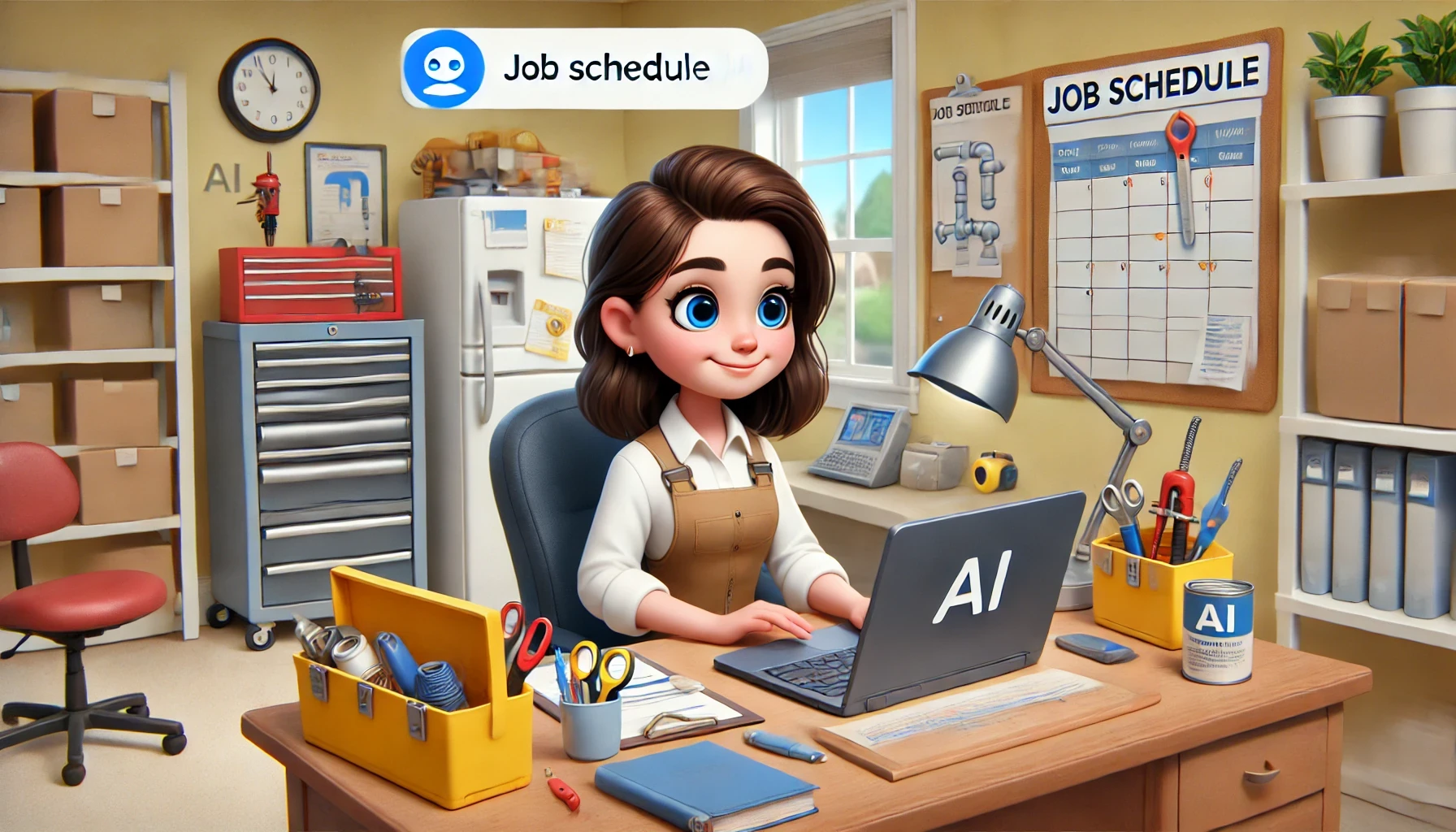Spoiler: It’s not coming for your job—it’s here to make your job easier.

Introduction
There’s been a lot of talk lately about AI replacing jobs—and if you’re an HVAC tech or service professional, you might be wondering if you’re next.
You’re not alone. I’ve heard people ask:
“Is AI going to do our jobs for us?”
“Will techs even be needed in 10 years?”
“Are smart systems going to make us irrelevant?”
It’s a fair question. But here’s the truth:
AI is not going to replace HVAC techs.
What it will do is change the way we work—and the techs who learn to work with AI will have a serious advantage over the ones who ignore it.
Let’s break this down.
What AI Can Do (And What It Can’t)
✅ What AI Can Do:
- Read sensor data and flag issues early
- Help identify parts and suggest replacements
- Translate error codes and suggest likely causes
- Recommend maintenance based on patterns
- Write service notes, emails, and quotes
- Help customers via chat before a tech even gets there
❌ What AI Can’t Do:
- Replace a capacitor on a blazing-hot roof
- Braze a line in a tight attic
- Diagnose a weird airflow issue that only happens when it rains
- Build trust with a customer face-to-face
- Adapt in real-time when the job throws you a curveball
AI’s not climbing a ladder or hauling a 90-pound coil across a parking lot. It doesn’t know how to “feel” a system with experience or make judgment calls when something just doesn’t add up.
So Why Are People Worried?
Because AI looks smart on paper.
It talks like it knows everything, and it can spit out answers fast. But that doesn’t mean it understands context, safety, or the hundreds of tiny decisions a good tech makes on the job.
And let’s be honest—the people building AI tools aren’t crawling through crawlspaces or troubleshooting on rooftops. They’re writing code in air-conditioned offices. That’s not a bad thing, but it means we need to translate this tech into real field work.
Where AI Is Changing the Job
AI won’t take your job—but it will change how your job looks.
Here’s how:
🧠 1. Faster Diagnostics
AI tools can speed up the process of identifying problems. Instead of starting from scratch, you’re starting with a short list of likely issues. That saves time.
Example:
You input a model number and an error code. AI says, “This is usually caused by a failed temperature sensor or a stuck contactor.” You’re already 5 steps ahead.
💬 2. Better Customer Communication
Let’s face it—most techs aren’t excited to write long service reports or explain complex repairs. AI helps you break things down in plain English or even write professional emails.
Example:
“Write a short message explaining to a homeowner why their blower motor failed and how much it will cost to fix.”
AI gives you something clear and professional in seconds.
📱 3. Field Support
Not sure what a part is? Take a picture. AI can help identify it and even link to suppliers.
Need help troubleshooting something unusual? Describe the problem, and AI can suggest what to check first.
It’s like having a tech forum, product guide, and experienced mentor in your pocket.
📊 4. Less Paperwork
Writing reports, organizing data, logging notes—AI can help automate the stuff that slows you down. Some companies are already using AI to generate work orders and service summaries automatically.
The Techs Who Win Will Be the Ones Who Adapt
AI isn’t a threat to HVAC techs—it’s a tool.
And like any tool, it’s all about how you use it.
Techs who embrace AI will:
- Troubleshoot faster
- Communicate more clearly
- Get more jobs done in less time
- Stand out in the hiring pool
- Be ready for smart homes, smart buildings, and smart equipment
Techs who resist it might find themselves playing catch-up.
Conclusion: It’s Not About Replacement—It’s About Reinforcement
AI can’t replace what we do with our hands, our instincts, or our people skills. But it can help us do those things better, faster, and with less stress.
This isn’t about being replaced. It’s about being ready.
The smartest move is to learn how to use AI as a tool—before your competition does.
📩 Want more posts like this? Sign up for my newsletter and get real-world AI tips for HVAC and other trades.
💬 Have questions about using AI on the job? Drop them in the comments or reply—I’ll cover them in a future post.



